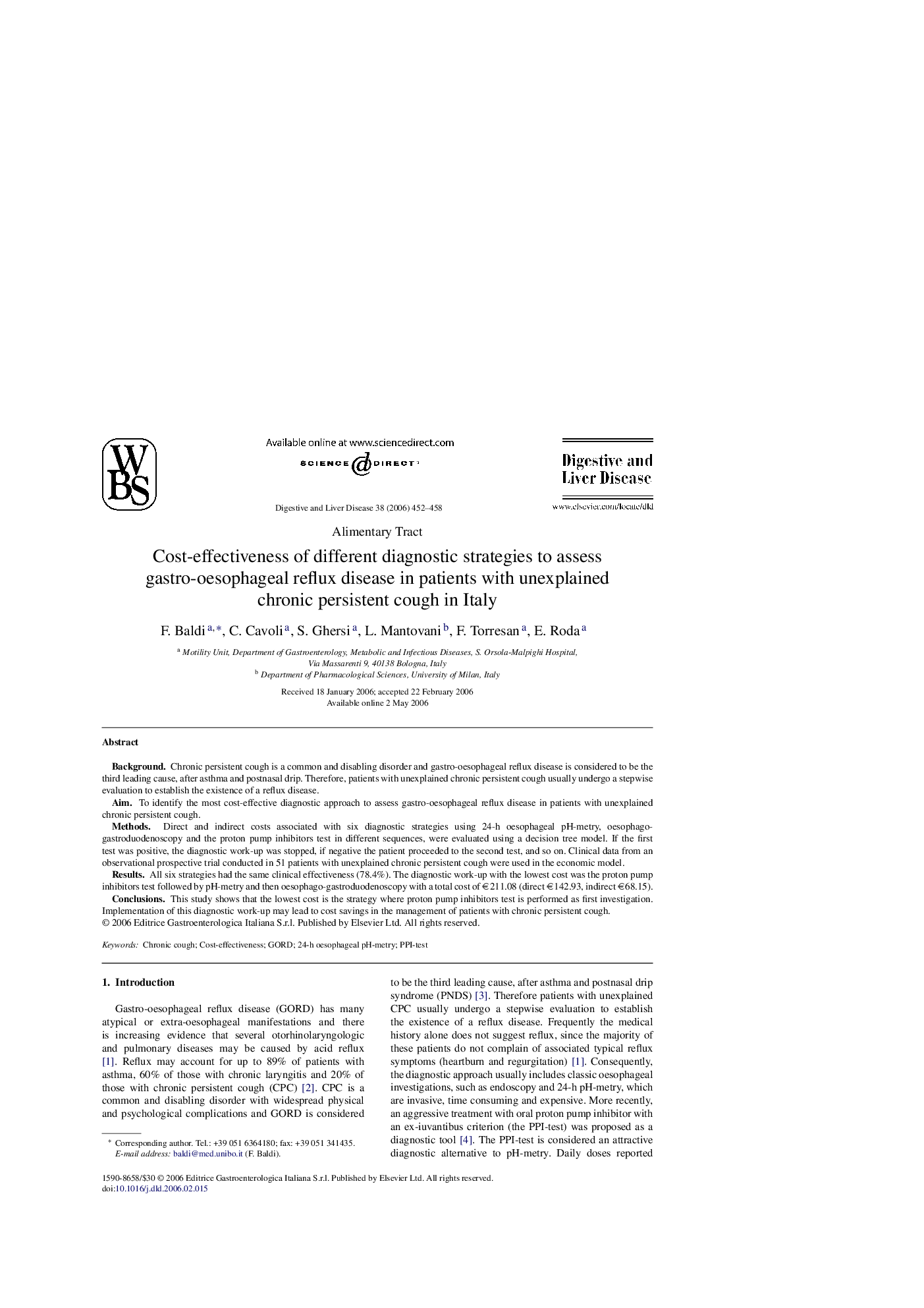| Article ID | Journal | Published Year | Pages | File Type |
|---|---|---|---|---|
| 3266717 | Digestive and Liver Disease | 2006 | 7 Pages |
BackgroundChronic persistent cough is a common and disabling disorder and gastro-oesophageal reflux disease is considered to be the third leading cause, after asthma and postnasal drip. Therefore, patients with unexplained chronic persistent cough usually undergo a stepwise evaluation to establish the existence of a reflux disease.AimTo identify the most cost-effective diagnostic approach to assess gastro-oesophageal reflux disease in patients with unexplained chronic persistent cough.MethodsDirect and indirect costs associated with six diagnostic strategies using 24-h oesophageal pH-metry, oesophago-gastroduodenoscopy and the proton pump inhibitors test in different sequences, were evaluated using a decision tree model. If the first test was positive, the diagnostic work-up was stopped, if negative the patient proceeded to the second test, and so on. Clinical data from an observational prospective trial conducted in 51 patients with unexplained chronic persistent cough were used in the economic model.ResultsAll six strategies had the same clinical effectiveness (78.4%). The diagnostic work-up with the lowest cost was the proton pump inhibitors test followed by pH-metry and then oesophago-gastroduodenoscopy with a total cost of €211.08 (direct €142.93, indirect €68.15).ConclusionsThis study shows that the lowest cost is the strategy where proton pump inhibitors test is performed as first investigation. Implementation of this diagnostic work-up may lead to cost savings in the management of patients with chronic persistent cough.
